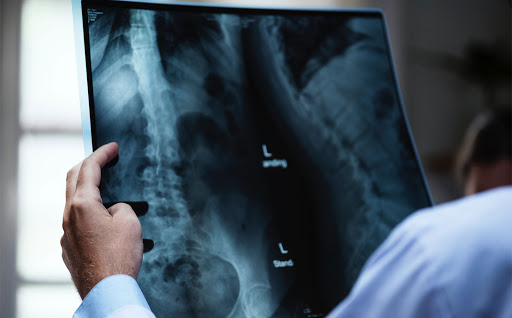There may be diverse responses to this question, whether the herniated discs will heal on their own, contingent upon who you ask. As per the fact, the spinal disc herniation symptoms can go away even without medication. However, does that indicate the spinal disc herniation healed on its own?
Due to such a large number of aspects, the appropriate response is imperfect. Truly, the symptoms may resolve, however, this does not really indicate that the spinal disc herniation restored automatically.
The Way Spinal Disc Herniation Causes Pain
Breaking the outer layer of the disc (annulus) or breaking the end plate off the vertebral body at last results in disc herniation, as a result, permitting the soft gel-like center to overflow out. This gel then works to squeeze or compress parts of the nerve sac, resulting in pain.
Inflammatory proteins are found in the herniated nucleus pulposus that works to make sufficient inflammation to impact the neighboring nerve and result in what is normally known as sciatica, or a radiculopathy.
How Does Spinal Disc Herniation Restore Itself, Or Wind Up A Symptomatic?
Three fundamental procedures are considered that turn out to diminish the symptoms and pain triggered by a lumbar herniated disc.
Immune Response by the Body
In a few examples, the body may perceive the portion of the disc that has herniated as outside material and attack it, lessening the part in size. The inflammatory proteins are also removed.
Water Absorption
Part of the herniated disc contains water. After some time this water will be consumed by the body, causing the herniated part to decrease in size. As soon as it decreases in size, it might never again impact the neighboring nerve.
Natural Mechanism of Disc
While dubious, some will contend that through extension workouts, the symptomatic segment of the disc can be pushed inward toward the disc and from the spinal nerves.
Best Exercises That Work in a Way to Help Diminish Herniated Disc Pain
A spinal disc herniation may require around 1 or 2 days of resting in order to ease the pain. Nonetheless, you should oppose the enticement of simply lying in bed for quite a long time since the muscles require conditioning which helps in the recuperation procedure. On the off chance that you quit doing your ordinary activities and physical exercises, your body probably won’t react well to the treatment as it would have done.
Few of the Benefits of Exercising
Everyday exercises are a decent method in order to strengthen the lower back muscles and consequently keeping any further injuries away as well as the pain. In the event that you have strong muscles, they will sufficiently bear the weight of the body and bones-in this way taking a portion of the excessive weight off from the spine. In any case, it is recommended to lose some weight regardless of the fact that you have strong muscles to support your back.
The reason behind it is that carrying around a considerable measure of weight will continually strain the back. On the off chance that you lose some weight, it will naturally work in a way to lower the pain and in this way support back’s health. In the case of lumbar herniation, it is advisable to particularly avoid the following exercises:
- Stay away from doing a standing hamstring stretch
- Stay away from using deadlifts

